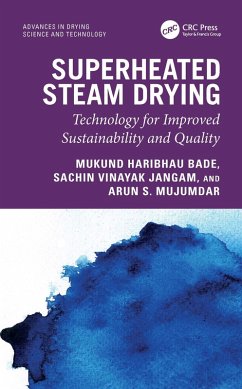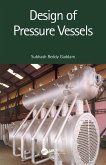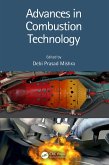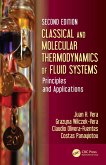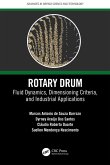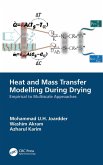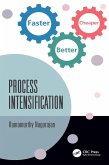Mukund Haribhau Bade, Sachin Vinayak Jangam, Arun S. Mujumdar
Superheated Steam Drying (eBook, ePUB)
Technology for Improved Sustainability and Quality
103,95 €
103,95 €
inkl. MwSt.
Sofort per Download lieferbar

52 °P sammeln
103,95 €
Als Download kaufen

103,95 €
inkl. MwSt.
Sofort per Download lieferbar

52 °P sammeln
Jetzt verschenken
Alle Infos zum eBook verschenken
103,95 €
inkl. MwSt.
Sofort per Download lieferbar
Alle Infos zum eBook verschenken

52 °P sammeln
Mukund Haribhau Bade, Sachin Vinayak Jangam, Arun S. Mujumdar
Superheated Steam Drying (eBook, ePUB)
Technology for Improved Sustainability and Quality
- Format: ePub
- Merkliste
- Auf die Merkliste
- Bewerten Bewerten
- Teilen
- Produkt teilen
- Produkterinnerung
- Produkterinnerung

Bitte loggen Sie sich zunächst in Ihr Kundenkonto ein oder registrieren Sie sich bei
bücher.de, um das eBook-Abo tolino select nutzen zu können.
Hier können Sie sich einloggen
Hier können Sie sich einloggen
Sie sind bereits eingeloggt. Klicken Sie auf 2. tolino select Abo, um fortzufahren.

Bitte loggen Sie sich zunächst in Ihr Kundenkonto ein oder registrieren Sie sich bei bücher.de, um das eBook-Abo tolino select nutzen zu können.
This book is a guide to selecting the appropriate type of superheated steam drying (SSD) as per operational techniques, including steam oven dryers, rotary drum dryers, tray dryers, flash dryers, and fluidized bed dryers. The book assesses future needs and opportunities for industry adoption and further innovation.
- Geräte: eReader
- mit Kopierschutz
- eBook Hilfe
Andere Kunden interessierten sich auch für
![Superheated Steam Drying (eBook, PDF) Superheated Steam Drying (eBook, PDF)]() Mukund Haribhau BadeSuperheated Steam Drying (eBook, PDF)103,95 €
Mukund Haribhau BadeSuperheated Steam Drying (eBook, PDF)103,95 €![Design of Pressure Vessels (eBook, ePUB) Design of Pressure Vessels (eBook, ePUB)]() Subhash Reddy GaddamDesign of Pressure Vessels (eBook, ePUB)52,95 €
Subhash Reddy GaddamDesign of Pressure Vessels (eBook, ePUB)52,95 €![Advances in Combustion Technology (eBook, ePUB) Advances in Combustion Technology (eBook, ePUB)]() Advances in Combustion Technology (eBook, ePUB)48,95 €
Advances in Combustion Technology (eBook, ePUB)48,95 €![Classical and Molecular Thermodynamics of Fluid Systems (eBook, ePUB) Classical and Molecular Thermodynamics of Fluid Systems (eBook, ePUB)]() Juan H. VeraClassical and Molecular Thermodynamics of Fluid Systems (eBook, ePUB)51,95 €
Juan H. VeraClassical and Molecular Thermodynamics of Fluid Systems (eBook, ePUB)51,95 €![Rotary Drum (eBook, ePUB) Rotary Drum (eBook, ePUB)]() Marcos Antonio de Souza BarrozoRotary Drum (eBook, ePUB)47,95 €
Marcos Antonio de Souza BarrozoRotary Drum (eBook, ePUB)47,95 €![Heat and Mass Transfer Modelling During Drying (eBook, ePUB) Heat and Mass Transfer Modelling During Drying (eBook, ePUB)]() Mohammad U. H. JoardderHeat and Mass Transfer Modelling During Drying (eBook, ePUB)71,95 €
Mohammad U. H. JoardderHeat and Mass Transfer Modelling During Drying (eBook, ePUB)71,95 €![Process Intensification (eBook, ePUB) Process Intensification (eBook, ePUB)]() Ramamurthy NagarajanProcess Intensification (eBook, ePUB)103,95 €
Ramamurthy NagarajanProcess Intensification (eBook, ePUB)103,95 €-
-
-
This book is a guide to selecting the appropriate type of superheated steam drying (SSD) as per operational techniques, including steam oven dryers, rotary drum dryers, tray dryers, flash dryers, and fluidized bed dryers. The book assesses future needs and opportunities for industry adoption and further innovation.
Dieser Download kann aus rechtlichen Gründen nur mit Rechnungsadresse in A, B, BG, CY, CZ, D, DK, EW, E, FIN, F, GR, HR, H, IRL, I, LT, L, LR, M, NL, PL, P, R, S, SLO, SK ausgeliefert werden.
Produktdetails
- Produktdetails
- Verlag: Taylor & Francis
- Erscheinungstermin: 22. Oktober 2024
- Englisch
- ISBN-13: 9781040147832
- Artikelnr.: 72286748
- Verlag: Taylor & Francis
- Erscheinungstermin: 22. Oktober 2024
- Englisch
- ISBN-13: 9781040147832
- Artikelnr.: 72286748
- Herstellerkennzeichnung Die Herstellerinformationen sind derzeit nicht verfügbar.
Mukund Haribhau Bade holds a PhD in energy modeling and process integration from the Department of Energy Science and Engineering, IIT Bombay, Mumbai, India. He has over 24 years of teaching and research experience in various technical institutes. He is currently working as an associate professor at the Department of Mechanical Engineering, SV National Institute of Technology, Surat, Gujarat, India. His main research interests are energy management, energy analysis and modeling, pinch analysis, drying technology including superheated steam drying, and pump as turbine for micro-hydro applications. He has published more than 50 articles in reputed international journals and conferences. He works as a reviewer for many reputed journals, like Energy Conversion and Management, Drying Technology, Clean Technologies and Environmental Policy, and ISH Journal of Hydraulic Engineering. In addition, he is also working on funded projects related to energy analysis and modeling for performance enhancements including textile dryers. He has mentored over four PhD students and guided projects of many master and undergraduate students.
Sachin Vinayak Jangam is a senior lecturer in the Department of Chemical and Bimolecular Engineering at the National University of Singapore (NUS). He completed his PhD in Chemical Engineering at the Institute of Chemical Technology, Mumbai, India. He has worked on mathematical modeling and experimental analysis of industrial drying of various products as a major part of his PhD thesis. He then worked as a research fellow at the Minerals, Metals and Materials Technology Center at NUS, developing cost-effective drying techniques for minerals. He has published several research articles, review papers, and book chapters on drying and related fields. He is a co-author of a book on foundational concepts of chemical engineering and edited several free e-books on drying. His current work focuses on drying, energy minimization, and pedagogy in chemical engineering education. He has been part of the editorial team of the archival journal Drying Technology (Taylor & Francis) since 2015.
Arun S. Mujumdar holds a PhD in Chemical Engineering from McGill University, Canada, and Doctor Honoris Causa from Lodz Technical University, Poland, University of Lyon, France, and Western University, Canada. He was a professor of Mechanical Engineering at the National University of Singapore (NUS), following a long tenure as a professor of Chemical Engineering at McGill University, Canada. He has mentored over 100 PhD students at several universities and published over 600 peer-reviewed papers which have attracted over 55,000 citations. He is the author of three books and 70 edited books on heat and mass transfer, drying, and mathematical modeling in transport processes. He holds honorary professorships in several universities. His research areas are transport phenomena, thermal management of fuel cells and battery stacks, energy systems, dewatering and drying and innovative drying processes in diverse industries, including foods, paper, products of biological origin, minerals, pharmaceuticals, and sludge.
Sachin Vinayak Jangam is a senior lecturer in the Department of Chemical and Bimolecular Engineering at the National University of Singapore (NUS). He completed his PhD in Chemical Engineering at the Institute of Chemical Technology, Mumbai, India. He has worked on mathematical modeling and experimental analysis of industrial drying of various products as a major part of his PhD thesis. He then worked as a research fellow at the Minerals, Metals and Materials Technology Center at NUS, developing cost-effective drying techniques for minerals. He has published several research articles, review papers, and book chapters on drying and related fields. He is a co-author of a book on foundational concepts of chemical engineering and edited several free e-books on drying. His current work focuses on drying, energy minimization, and pedagogy in chemical engineering education. He has been part of the editorial team of the archival journal Drying Technology (Taylor & Francis) since 2015.
Arun S. Mujumdar holds a PhD in Chemical Engineering from McGill University, Canada, and Doctor Honoris Causa from Lodz Technical University, Poland, University of Lyon, France, and Western University, Canada. He was a professor of Mechanical Engineering at the National University of Singapore (NUS), following a long tenure as a professor of Chemical Engineering at McGill University, Canada. He has mentored over 100 PhD students at several universities and published over 600 peer-reviewed papers which have attracted over 55,000 citations. He is the author of three books and 70 edited books on heat and mass transfer, drying, and mathematical modeling in transport processes. He holds honorary professorships in several universities. His research areas are transport phenomena, thermal management of fuel cells and battery stacks, energy systems, dewatering and drying and innovative drying processes in diverse industries, including foods, paper, products of biological origin, minerals, pharmaceuticals, and sludge.
1. Introduction. 2. Basics of Superheated Steam Drying. 3. Superheated
Steam Drying for Biological Products. 4. Lab/Pilot Scale or Commercial SSD
Systems. 5. Low-Pressure SSD. 6. Integration of SSD with Other Drying
Technology. 7. Modeling of SSD and LPSSD. 8. Advances, Prospects, and
Global Market Demands: SSD.
Steam Drying for Biological Products. 4. Lab/Pilot Scale or Commercial SSD
Systems. 5. Low-Pressure SSD. 6. Integration of SSD with Other Drying
Technology. 7. Modeling of SSD and LPSSD. 8. Advances, Prospects, and
Global Market Demands: SSD.
1. Introduction. 2. Basics of Superheated Steam Drying. 3. Superheated
Steam Drying for Biological Products. 4. Lab/Pilot Scale or Commercial SSD
Systems. 5. Low-Pressure SSD. 6. Integration of SSD with Other Drying
Technology. 7. Modeling of SSD and LPSSD. 8. Advances, Prospects, and
Global Market Demands: SSD.
Steam Drying for Biological Products. 4. Lab/Pilot Scale or Commercial SSD
Systems. 5. Low-Pressure SSD. 6. Integration of SSD with Other Drying
Technology. 7. Modeling of SSD and LPSSD. 8. Advances, Prospects, and
Global Market Demands: SSD.
